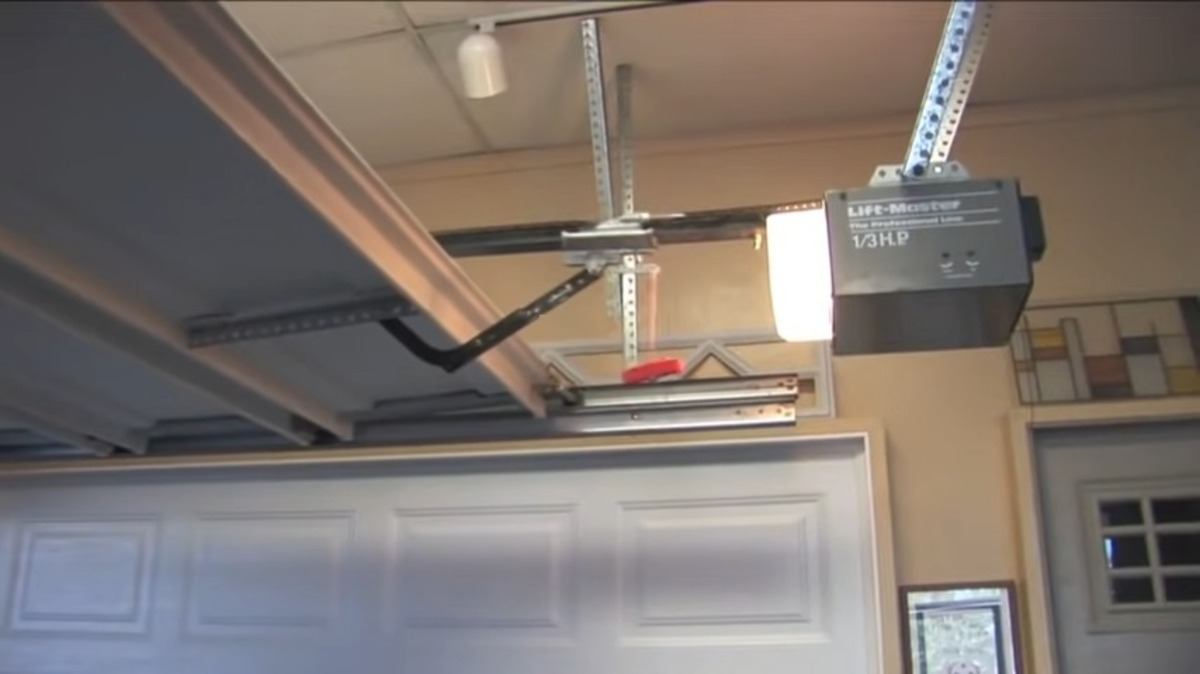Affiliate Disclosure: We may earn money or products from the companies mentioned in this post.
Most of us rely on our garage door openers every day to make our lives a little easier, but when cold weather strikes, we may be left wondering if our garage doors will still open, since temperatures can drastically affect the temperature of a garage door opener.
In this article, we’ll answer the question if cold weather can affect garage door openers and also offer tips on how to protect the garage door opener and keep it running smoothly, regardless of the temperature outside.
Does Cold Weather Affect Garage Door Openers?
Yes, cold weather can affect garage door openers. Cold temperatures can cause the door opener to move slowly or not open at all. This is because the cold weather can cause the interior components of the opener to stiffen up and become less responsive.
The cold weather can also reduce the lubrication in the opener, causing the opener to have difficulty functioning. In extremely cold weather, the opener may even freeze up completely.
Cold weather can also cause the metal parts of the opener to contract, which can cause the opener to malfunction or become damaged. In addition, the cold weather can cause the rubber seals on the garage door to become stiff and less effective, which can allow cold air to enter the garage and affect the performance of the opener.
To avoid these issues, it is important to maintain and service the opener regularly, and to ensure that it is properly insulated from the cold. Additionally, if the temperature is expected to drop significantly, it is a good idea to check on the opener and ensure that it is still operating correctly.
Common Issues With Garage Door Openers During Cold Weather
Cold weather can be hard on garage door openers, as the extreme temperatures can cause certain components in the openers to contract, freeze, or even crack. As a result, there are some common issues that homeowners may experience when using their garage door openers during cold weather.
One of the most common issues is that the opener may not be able to lift the door, as extreme weather can make the torsion springs which are necessary for pulling the garage door weak.
Here are some common issues that cold weather can cause with garage door openers:
1. Thick Lubricant
Cold weather can cause the lubricant in the opener’s moving parts to become thicker, which can make it harder for the opener to function smoothly.
2. Metal Contraction
Cold weather can cause the metal parts of the opener to contract, which can cause the opener to malfunction or become damaged.
3. Stiff Rubber Seals
The cold weather can cause the rubber seals on the garage door to become stiff and less effective, which can allow cold air to enter the garage and affect the performance of the opener.
4. Battery Issues
If the battery is low or if there is a problem with the electrical system, the cold weather can further complicate these issues and cause the garage door opener to malfunction.
5. Frozen Garage Door
In extreme cold, the garage door itself may freeze to the ground or to the track, making it difficult or impossible for the garage door opener to open it.
How To Prevent Cold Weather From Affecting Garage Door Openers
It’s important to prevent cold weather from affecting your garage door opener as it can have a significant impact on reducing the performance of the garage door opener. Here are some tips for preventing cold weather from affecting your garage door opener;
1. Keep The Garage Well Insulated
Insulating the garage can help to keep the temperature inside more stable, which can help to prevent the opener from being affected by cold weather.
2. Lubricate The Moving Parts
Lubricating the moving parts of the opener regularly can help prevent the lubricant from becoming thick and sluggish during cold weather.
3. Check And Replace Worn Or Damaged Parts
Worn or damaged parts can be more prone to malfunction in cold weather, so it is important to check for and replace any worn or damaged parts on a regular basis.
4. Keep The Battery Charged
A low battery can cause the opener to malfunction, particularly in cold weather. Make sure to keep the battery charged to ensure that it is able to function properly.
5. Keep The Garage Door Closed
When the garage door is open, cold air can enter the garage and affect the performance of the opener. Keep the garage door closed as much as possible to help prevent this from occurring.
6. Use A Weather Seal
A weather seal can help to prevent cold air from entering the garage through the gaps around the door. This can help to keep the garage warmer and prevent the opener from being affected by the cold.
7. Clear The Track Of Water
Make sure that the garage door tracks are clear of water, this will prevent it from freezing and making the opener unable to open it.
By following these tips, you can help to prevent cold weather from affecting your garage door opener and ensure that it continues to function smoothly throughout the winter months.
Does Hot Weather Affect Garage Door Openers?
Yes, hot weather can affect the operation of your garage door opener. It can cause the internal components of the opener to overheat, leading to a decrease in performance. This can cause the opener to be slower, noisier, or even to stop working altogether.
Additionally, if the garage door opener is exposed to a great deal of heat over a long period of time, it may shorten its lifespan. To help keep your garage door opener running smoothly and efficiently, it is recommended to keep it out of direct sunlight and to clean it regularly to prevent a build-up of dust and debris.
Additionally, keeping the area around the opener clear of clutter and debris will help ensure that there is good air circulation and reduce the chances of the opener overheating.
Common Issues With Garage Door Openers During Hot Weather
Hot weather can lead to a variety of issues with garage door openers. Extreme heat can cause the garage door opener motor to overheat and fail, leading to the door not opening or closing.
Additionally, hot weather can cause lubrication to wear off more quickly, leading to increased friction and decreased performance of the garage door opener. Some common issues that can occur with garage door openers in hot weather include
1. Decreased Performance
The high temperatures can cause the garage door opener to work less efficiently, resulting in slower operation or reduced power.
2. Motor Failure
The motor in a garage door opener can overheat in hot weather, which can cause it to fail.
3. Degraded Lubrication
The high temperatures can cause the lubrication on the garage door opener’s moving parts to break down, leading to increased wear and tear.
4. Warping Of The Door
If the temperature inside the garage becomes too hot, it can cause the garage door to warp, which can affect its ability to open and close properly.
5. Expansion And Contraction Of Metal Parts
As metal parts heat up and cool down, they can expand and contract, which can cause problems with the operation of the garage door opener.
To prevent these issues, it’s important to keep the garage door opener well-maintained and lubricated and to make sure that the temperature inside the garage is not too extreme. If you live in a hot climate, you may want to consider purchasing a garage door opener specifically designed for use in hot weather.
Tips On How To Prevent Hot Weather From Affecting Garage Door Openers
Keeping your garage door opener functioning properly in hot weather can sometimes be a challenge, but there are a few simple steps you can take to help prevent your opener from being affected by the heat.
To prevent hot weather from affecting your garage door opener, you can follow these tips:
1. Keep It Well-Maintained
Regular maintenance, such as lubricating the moving parts and checking for any worn or damaged components, can help to prevent issues with your garage door opener in hot weather.
2. Keep It Cool
To help prevent the motor from overheating, try to keep the temperature inside the garage as cool as possible. This can be achieved by using a garage door opener with a built-in cooling system, or by installing a fan to blow cool air over the motor.
3. Use A Garage Door Opener Specifically Designed For Hot Weather
Some garage door openers are specifically designed to withstand high temperatures and are less prone to overheating and other issues.
4. Avoid Leaving The Garage Door Opener Running For Long Periods Of Time
If you don’t need to use the garage door frequently, try to avoid leaving the opener running for extended periods of time. This can help to prevent the motor from overheating.
5. Use A Garage Door Cover
A garage door cover can help to keep the temperature inside the garage cooler by providing shade and insulation. This can help to protect your garage door opener from the effects of hot weather.
Conclusion
It’s important to be aware that cold weather can have a significant impact on the performance of your garage door opener.
By taking steps to protect your garage door opener from the cold, such as keeping it well-maintained and lubricated, and taking steps to prevent the temperature inside the garage from getting too cold, you can help to ensure that your garage door opener continues to operate smoothly and reliably even in the coldest weather.


